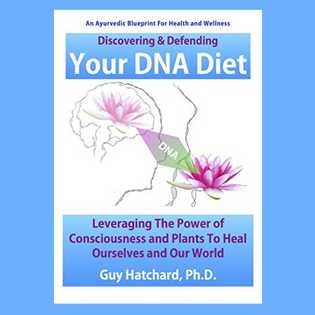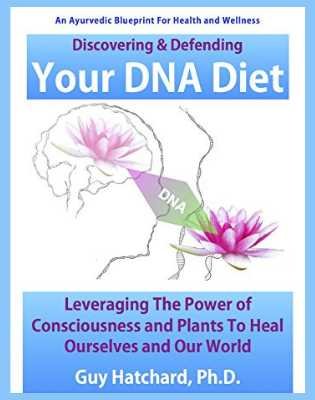Governments don’t mind exposing people to health risks as long as it appears they are doing something about climate change (even if they aren’t)
This article is also available as a PDF to download, print, and share and as an audio version.
The New Zealand Government is deregulating biotechnology. As we have previously reported, the PR logic (if you can call it that) underpinning their bold (idiotic?) move says:
- Biotechnology is generally safe, so testing may be minimal or not required
- There is no need to label gene altered foods (presumably because the US doesn’t)
- Biotech tech measures aimed (rather inaccurately) at reducing climate change will be welcomed by the public here and overseas
- Kiwi biotech will produce an economic miracle
None of the above are remotely true or plausible. Here’s some more evidence:
The UK Daily Mail published an article today entitled “Expert’s verdict on Arla Foods’ ‘Bovaer’ following alarming claims that milk from Tesco, Morrisons and Aldi is packed with ‘cancer-causing’ additive“. It reports:
“Shoppers threatened to boycott dairy products like milk and butter (Lurpak) made by Danish food firm Arla and sold in Tesco, Morrisons and Lidl, after the company announced a trial that would involve giving a feed additive to its cows called ‘Bovaer’ made by Dutch-Swiss multinational DSM-Firmenich. The chemical, which will be introduced to cattle’s food, is designed to reduce the amount of methane they produce during digestion, a gas that [the Mail understands] contributes to [recent] climate change“.
All this despite the fact that ruminants have roamed the earth in their billions for thousands of years. Reportedly a quarter teaspoon of Bovaer a day reduces methane emissions by 30% (there’s an advertising jingle hiding somewhere in there).
Bovaer is a synthesised powdered chemical feed supplement that blocks an enzyme involved in methane formation reducing the amount of methane emitted by each animal. It contains silicon dioxide, propylene glycol and the main active ingredient 3-nitrooxypropanol, or “3-NOP”. Test results submitted to the UK Food Standards Authority by the manufacturer have shown that 3-NOP can be harmful to humans if inhaled. It is also a skin and eye irritant. Tests showed that 6-8% female rats fed higher doses developed Mesenchymal cell hyperplasia (a known precursor to cancer) as well as developing benign(???) tumours.
EU FSA tests using standard OECD safety protocols found accumulations of 3-NOPin the liver, kidneys, and adrenal glands of male rats along with traces in the brain. Leading to the conclusion that the genotoxicity of 3-NOP is not fully understood. Genotoxicity is the capacity of a chemical to damage the DNA and cause cancers. The long term effects of Bovaer are therefore unassessed. A US FDA advisory says the product is not for human use and warns it can damage male fertility and reproductive organs. Thank goodness they won’t be putting it in cornflakes, just in the milk.
Cows apparently haven’t raised any objections, despite the fact that the tests showed that Bovaer reduced their heart and ovary size—an effect the UK FSA decided could not be classified as adverse (???). In one study at higher doses, 3-NOP was detected in the milk in 3 out of the 4 cows involved. Two of the cows had to be euthanized early.
UK consumers, who take milk with their cereal and tea, and spread butter on their bread, are understandably concerned. A boycott movement has taken shape influencing farmers and dairy markets. No worries though, because an expert interviewed by the Mail, Professor Gunter Kuhnle, a nutritionist at the University of Reading says:
“Additives used in farming must undergo rigorous testing by food safety authorities both in the UK and in Europe in order to be permitted for use. If something is in use by a major brand you can generally trust that it is perfectly safe for consumption.”
Manufacturer DSM-Firmenich assured the public that “provided it is used as recommended, Bovaer never enters into milk and therefore does not reach consumers.” There is a false premise being applied here—trace or low concentrations of toxic chemicals can be safely ignored. Note that the word ‘never’ in the DSM statement is carefully and legally conditioned by the word ‘provided.’ It has to be because 3-NOP has been detected in milk if administered to cows at higher doses than those recommended.
Phew! Of course, no one would ever do anything that silly, would they? In any case, you can always follow the FDA advice and wear protective clothing when eating your breakfast and handling toast and jam which would most likely also reduce your chance of catching COVID-19.
In October, we reported on methane reducing pills for cows being researched by a New Zealand firm whose ingredients are being kept secret (you can see why can’t you?), under the title “Do White Coats Make You More Intelligent?. It appears that a Swiss-Dutch firm has beaten us to it. Bovaer is now approved for farm use in 55 countries. New Zealand’s Environment Protection Authority (EPA) gave the green light to register Bovaer in our country back in August 2023. Although any current New Zealand use is not documented, if biotech deregulation goes ahead, it is unclear if the public will ever be allowed to know about it.
So, given the alarming red flags in the test results, why are food safety regulators approving Bovaer? They are doing so because of the political priority to appear to be addressing climate change. It appears as if it doesn’t matter that public health is put at risk as long as woke political correctness is satisfied.
Summing up: Bovaer is a synthesised product whose long term outcomes are unknown, which is being introduced into the global food chain without labelling. There are preliminary indications that it may cause cancer. Consumers in the UK are incensed. People like their traditional foods unadulterated. The claim of the New Zealand government that consumers will flock to such so-called climate-reducing biotech products which will drive our farm exports into the stratosphere appears to be unfounded. The opposite may even be the case, overseas consumers may reject our products. Finally, as we reported two years ago in our article “It’s the cows, stupid“, cows are not the problem, but blaming them for climate change might just deflect criticism away from the great and good travelling in fuel-thirsty private jets many of whom are heavily invested in our biotech future.
So, what are the financial incentives helping to drive biotech experimentation on our food chain? It is quite simple. There are about 35 million ruminants (cows, sheep, deer and goats) being farmed in New Zealand, seven ruminants for every one of us. A product that is required to be administered every day or at regular intervals will make the inventor and patent holder billions. Money talks, if the long term effect of this product on public health is unknown and already under suspicion, so what? In the balance of things we all want to be billionaires. It is a gold rush, but not one that will result in any net public good, quite the reverse. It is one more dire risk that our government is happy for us to shoulder on their behalf. The biotech sector has a growing appetite for wealth, power and deregulation. Hundreds of other projects affecting us directly are already in the regulatory pipeline. Under biotech deregulation, no one will be required to ask us if novel food is wanted or acceptable. It will just show up unannounced at breakfast. Please write to your MP.
FYI the UK Soil Association says that organic standards prohibit the use of Bovaer, so it can be avoided by shopping for certified organic products.






